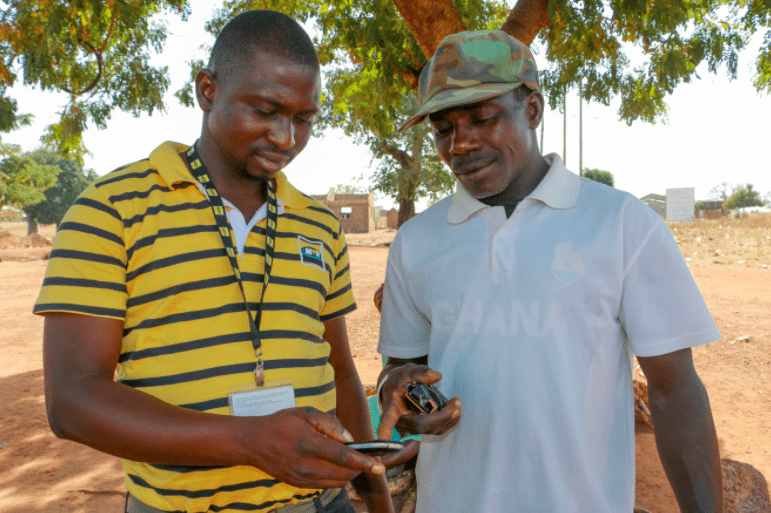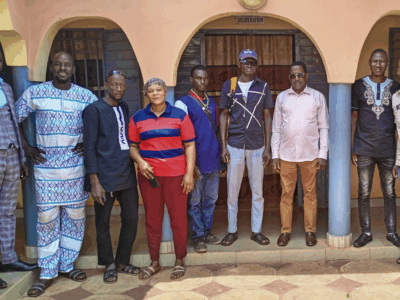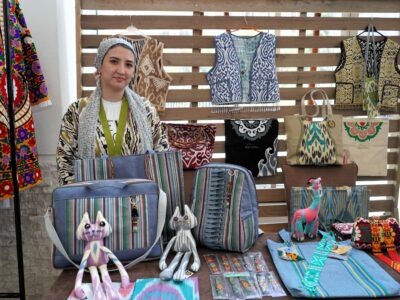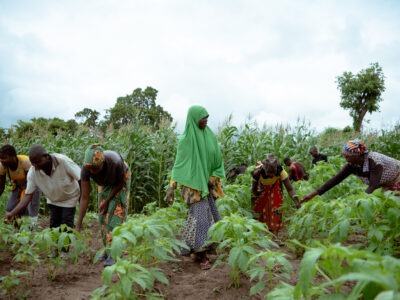
The situation around the coronavirus (COVID-19) outbreak is rapidly evolving within almost every nation in the world. As its spread continues to cripple governments, economies, companies, and households, we are adapting our systems to build resilience among our staff, our operations, and the communities we reach.
During a virtual meeting of our global staff on April 1, chiefs of party who lead our programs across the globe shared how they are communicating with staff, pivoting program activities, and using technology to move forward.
Here’s how several ACDI/VOCA field offices are adapting to the ongoing pandemic:
Stay Connected to Staff
- Many of our global staff are teleworking full-time for the first time. While some have systems in place, others are downloading collaboration tools. Despite the learning curve, the widespread use of Microsoft Teams and Skype for Business ensures staff can chat, host video calls, share documents, and collaborate on a daily basis. Many staff are checking in daily or weekly through virtual meetings to maintain a sense of normalcy and continue sharing ideas. The value of seeing each other’s smiling faces should not be underestimated!
- To protect the safety and security of staff, our chiefs of party are also communicating through WhatsApp. Many of our field offices have used WhatsApp programmatically for years. Chief of Party Cuan Opperman in Bangladesh, who is now working remotely from his home country of South Africa, said his team sends daily messages via WhatsApp, especially now, as the program pivots to focus more on emergency food security. Staff also received increased mobile data allowances.
Prevent the Spread of Misinformation
- During the virtual meeting of program leaders, it became clear that the spread of misinformation disproportionally affects staff in certain countries and contexts. Our chiefs of party are helping staff sift through the information by only sharing updates from credible sources, such as the World Health Organization, Centers for Disease Control and Prevention, or USAID.
- The challenge, as noted by Chief of Party Glenn Lines, who remains in Liberia, is that many people tend listen to their friends or the local press. One solution is to request that staff only share reliable information on official work channels. If they want to share other updates, they can step outside of those channels.
- Some chiefs of party are encouraging staff to share trusted messages from USAID Missions and others within their personal networks to offset the spread of misinformation.
- In some countries, guidelines on social distancing and hygiene are lacking in native languages, including indigenous languages. Indigenous groups who live in voluntary isolation are especially vulnerable to infectious disease.
Use ICT to Reach Beneficiaries and Measure Impact
- Many global development programs are stepping up their use of information and communications technology (ICT) to adapt to the evolving crisis. Our programs are exploring uses of ICT to conduct remote surveys, collect data, and repurpose in-person trainings to virtual media.
- In Tanzania, Chief of Party Jim Flock, who is working remotely from the United States, said his team developed a weekly tracker to gather data, keep staff focused on deliverables, and measure progress. Along with frequent meetings with donors and stakeholders, the tracker provides documentation of what worked and what didn’t during the disruption. Mapping impact in targeted communities and among partners could also help inform future repurposing of funds to support the recovery.
Support Program Leaders—At Posts and At Home
- To support collaboration, ACDI/VOCA is exploring the creation of an online resource, such as a group on Microsoft Teams, where program leaders can discuss solutions, share resources or program innovations, and ask questions through an accessible, low-cost space.
Pivot Program Activities
- Several of our programs are beginning to shift their interventions to address disruptions in food supply chains, from supporting home delivery services to reporting bottlenecks to policymakers and advocating for lifted import restrictions on key food commodities.
- Others are adapting program grants to relieve highly affected businesses and expand their access to tablets and other technology. In Honduras, Chief of Party Sergio Rivas said that the program is focusing on rescuing businesses that have come to a stop. That includes helping them move to a home delivery modality and acquire the necessary personnel and equipment to market and sell their products online.
- Some program grants may be repurposed to reach the health sector or to promote hygiene and sanitation.
- Our programs in Colombia are also seeking to strengthen hotlines and remote counseling services in face of rising household and gender-based violence.
- In addition to prepping post-crisis activities, some programs are accelerating activities that were planned for much later phases. For example, in Tanzania, efforts to ensure the sustainability of the program after it closes are being put into action now. This will include increasing the use of ICT, distributing tablets and mobile phones to farmers and partners, and starting virtual business-to-business meetings and roundtables with farmer groups.
Are your global development programs and leaders finding new ways to cope and adapt during the pandemic? We encourage you to share your thoughts and ideas in the comments below.








